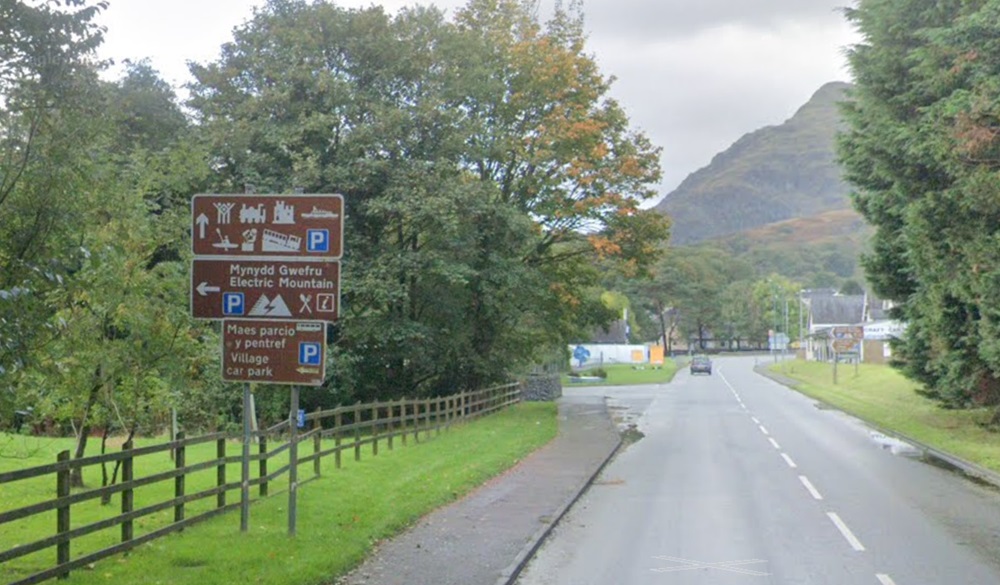Council agrees 40 percent hike in parking fees to meet funding shortfalls

Dale Spridgeon, local democracy reporter
Squeezed budgets and a “challenging” fiscal situation have prompted a council’s “difficult decision” to raise parking fees by 40% across the board.
Cyngor Gwynedd’s cabinet agreed to proceed with “savings schemes” to meet a funding gap and protect services when it met on Wednesday afternoon (October 15).
The council estimates that increasing all fees by 40% will lead to a total annual additional income of £800,000. The cabinet agreed to approve and enable its parking service to move forward its money saving schemes. Two had already been agreed in 2023/24.
Annual parking ticket
They had included increasing the parking fees at Pen y Gwryd, which are currently £2 for half a day and £4 for a full day, to £4 for six hours and £8 for 12 hours. The cabinet also approved proceeding with the plan to increase the price of an annual parking ticket from £140 to £145 per year and the price of a local parking ticket from £70 to £75 per year.
Two more schemes, which had required “further consideration” before a final decision was reached were also given the green light. These will see an extension of the enforcement hours of short stay car parks from 10am to 4.30pm, to between 9am and 5pm, and adjustments to the “Band 2 Long Stay Fee Structure” – forecast to bring in an estimated additional £78,000 in income.
The £1 summer, long stay fees, for up two hours, the minimum stay would be abolished. The price to park for four hours, currently £2, which would rise to £2.50, to generate a further £160,000 per year.
It was also anticipated that by increasing Pen y Gwryd parking fees , £40,000 could be raised, and upping the cost of the Annual and Local Car Park Permit by £5 per annum would bring in £17,000. The existing summer fees for up to 12 hours, at £5, and up to 24 hours, at £10, would stay the same.
Winter fees
The Band 2 long stay winter fees, would also see the loss of the £1 fee for the minimum stay of up to two hours. The price to park up to four hours would rise from £2, to £2.50, with up to 12 hours; priced at £3 and up to 24 hours, costing £4, staying the same.
The agreement of a 40% increase across all parking fees would help keep up with inflation and “meet income targets and address a significant shortfall in budgets,” the council said. It will now proceed with plans to implement the changes from April 1, 2025.
A report stated it was “inevitable for the council to realise significant savings and cuts, together with increasing the level of council tax to address the severe financial deficit in budgets”.
“Services across the council submitted savings schemes that were equivalent to 20% of their budgets in a bid to alleviate the extremely challenging fiscal situation facing us.”
It noted that inflation added on to the parking fee income targets at the start of each financial year, meant “a significant increase in the target means that income generated no longer reaches the set target. As a result, it creates the impression of significant cost overspend in service budgets.
“It is anticipated that increasing parking fees by 40% would be sufficient to address the expected inflation increase until the 2028-2029 financial year.”
Income
Presenting the report, Gerwyn Jones, said: “We are looking to generate income where possible but also to look after our residents through things like the season tickets.
“When you break it down the annual ticket cost works out at 40p and the local ticket at 21p per day.
“If you are familiar with driving, when you consider fuel and insurance and so on, this is very reasonable for the provision for our local residents in my mind.”
He also noted “a problem suffered” by the council which meant the gap between the income generated due, to parking fees not being increased over several years, whilst targets had increased.
“It was £590,000 last year and in this year coming year it will be £850,000, so our recommendation is based on those figures, and looking at inflation, it is now recommended that we raise the fees across the board by 40 percent.”
“We are trying to address the situation we are currently facing,”
Inflation
Chief executive Dafydd Gibbard added: “We cannot hide the situation, the fact that our financial situation is pushing us to many things in the report, including having to catch up with inflation, which is out of control nationally, for two or three years now.
“We have to make decisions to catch up with the impact of that, and you [the cabinet] have to make difficult decisions such as these, as a contribution to our financial gap.
“There re no easy decisions left. Looking at income generation does mean we can protect other services that someone may be dependent on.”
Council leader Dyfrig Siencyn added: “We know raising fees impacts our residents, but the message is clear, we don’t have sufficient money to pay for our services.”
Support our Nation today
For the price of a cup of coffee a month you can help us create an independent, not-for-profit, national news service for the people of Wales, by the people of Wales.






Parking fees are the only way councils can raise revenues from the visitor economy. Until that changes fees should be tripled with lots of discounts to benefit local people and encourage visitors to spend more time in the area (such as £10 for 4hrs or £20 for a week, valid in all council carparks).
I suspect many in North Wales would wish that there would be zero visitors.
Reducing the total numbers but increasing the proportion who spend big benefits everyone. More money and no queues.